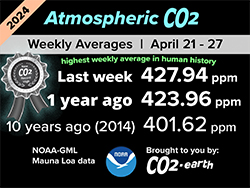Blockchain Translation & AI
Digital Revolution in Translations — How Blockchain and AI are Transforming the Language Industry
Welcome to Hoken Tech The translation sector has always been a fundamental pillar in global communication, facilitating the exchange of ideas and information between different cultures and languages.
However, in recent years, this sector is experiencing a true digital revolution, driven by two emerging technologies: blockchain and artificial intelligence (AI).
These innovations are redefining processes, efficiency, and even the role of professional translators. AI, with its ability to process and understand natural language, is bringing machine translation to previously unthinkable levels of accuracy.
On the other hand, blockchain, with its decentralized and secure nature, is introducing new models of data management and transactions in the sector.
Artificial Intelligence in Translations
The evolution of machine translation has made giant strides in recent years, moving from rule-based systems to sophisticated machine learning algorithms. Today, AI is at the center of numerous applications in the translation sector:
Neural machine translation: uses artificial neural networks to produce more fluent and contextually appropriate translations.
Virtual assistants for translators: AI-based tools that support professionals with real-time suggestions and terminology management.
Sentiment analysis and localization: AI helps understand the cultural and emotional nuances of text, improving the quality of localized translations.
The advantages of implementing AI in translations are numerous:
- Increased speed and productivity: AI can process large volumes of text in record time, significantly increasing efficiency.
Cost reduction: automation of some phases of the translation process can lead to a decrease in operational costs.
Improvement of terminological consistency: AI can maintain linguistic consistency on a large scale, essential for large projects.
Despite these advances, it’s important to emphasize that AI does not completely replace the human translator, but rather enhances their capabilities, allowing them to focus on more creative and complex aspects of the work.
Blockchain in the Translation Sector
Blockchain, mainly known for its role in cryptocurrencies, is finding innovative applications in the world of translations. This distributed ledger technology offers a new paradigm for secure and transparent information management.
In the translation sector, blockchain finds several applications:
Secure management of data and documents: ensures the integrity and confidentiality of original texts and translations.
Traceability and authentication of translations: every modification or version of a translation can be recorded immutably, creating a verifiable history.
Smart contracts for payments and collaborations: automate payment processes and contract management between clients and translators.
The benefits of adopting blockchain in translations include:
Increased security and transparency: the decentralized nature of blockchain reduces the risk of manipulations and fraud.
Protection of intellectual property: offers a secure way to demonstrate the authenticity and ownership of translations.
The implementation of blockchain in the translation sector is still taking its first steps, but its potential to revolutionize project management, data security, and trust between parties is undeniable.
Challenges and Ethical Considerations
Despite the numerous advantages, the adoption of AI and blockchain in the translation sector also raises important challenges and ethical issues:
Privacy and data protection: the use of AI and blockchain must comply with data protection regulations, such as GDPR in Europe, and protect confidential documents.
Technological unemployment: automation could threaten some jobs in the sector, requiring retraining of professionals.
Quality and accuracy of machine translations: despite progress, AI can still make mistakes, especially in complex or culturally sensitive contexts, and a human reviewer is needed to check for errors.
Ethical issues to address include responsibility for translation errors generated by AI, fairness in the distribution of automation benefits, and preservation of linguistic and cultural diversity.
The Future of Translations
Looking to the future, we can predict a significant evolution of the translation sector:
AI will continue to improve, handling routine translations and leaving more complex and creative tasks to human professionals.
Blockchain could standardize verification and payment processes, creating a more fluid global market for translation services.
New professional roles will emerge, such as specialists in post-editing of AI translations or experts in technology-assisted cultural localization.
Translators of the future will need to develop new skills, combining linguistic expertise with technological knowledge and AI system management capabilities.
Conclusions
The integration of artificial intelligence and blockchain in the world of translations is driving a profound transformation of the sector.
These technologies promise to increase the efficiency, security, and transparency of processes, opening new opportunities but also raising important challenges.
While AI improves the speed and consistency of translations, blockchain ensures data integrity and traceability. Together, these technologies are creating a more interconnected and reliable ecosystem for all actors involved.
For this occasion, the Hoken Tech team interviewed the CEO of a major international translation agency, BBLTranslation, addressing all these topics, including blockchain, as they are at the forefront with blockchain notarization.
Below is the full interview with the CEO of BBLTranslation, Barbara Beatrice Lavitola:
nft, hoken tech, blockchain, cryptoart, eos, nft art, artificial intelligence, ai, watch authentication, crypto artist, nfts, web3, nft game, web3 game, videogame, nft distributor, videogame blockchain







